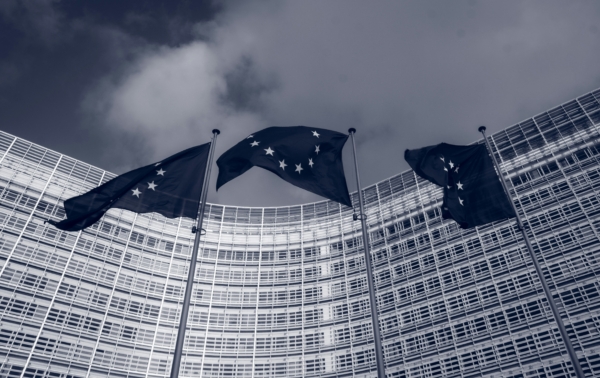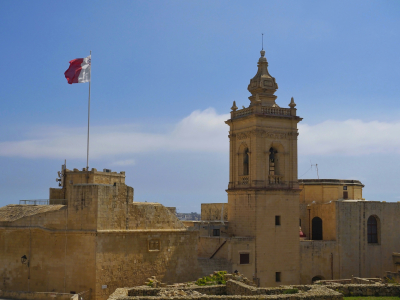The following letter was submitted by Transparency International and its representatives. Access it as a PDF file here.
19 May 2025
Dear G7 Finance Ministers and Central Bank Governors,
As you gather in Banff amid global economic and security instability, Transparency International and its representatives across the G7 urge you to demonstrate renewed leadership in the fight against kleptocracy and transnational corruption.
Russia’s full-scale invasion of Ukraine three years ago demonstrated the dangers of unchecked kleptocracy and transnational corruption. Leaders of the G7 countries, the European Union and Australia responded to the war by coordinating sanctions on Russian oligarchs and announcing a Russian Elites, Proxies, and Oligarchs (REPO) Task Force to trace and freeze the assets of those enabling aggression and kleptocracy. The launch of the REPO Task Force in March 2022 by G7 Finance Ministers and other representatives sent a valuable signal about the G7’s commitment to work “together to hunt down the assets of key Russian elites and proxies and to act against their enablers and facilitators … to isolate them from the international financial system and impose consequences for their actions” and to “encourage other countries to also take up this critical effort”.
But today, the future of G7 coordination on this valuable initiative is in question, as reflected in the absence of any reference to the REPO Task force in recent G7 communications. The global response to kleptocracy is at a crossroads.
Moreover, the systemic vulnerabilities that allowed kleptocrats to embed themselves in G7 economies remain largely intact. Specifically, kleptocrats can still establish opaque ownership structures, take advantage of fragmented oversight systems and enlist support from professional service providers who enable cross-border secrecy. For example, the recently launched Opacity in Real Estate Ownership index1 from Transparency International and the Anti-Corruption Data Collective shows several G7 members score particularly poorly on anti-money laundering regulation and supervision of professionals involved in real estate transactions, and transparency in property ownership. These weaknesses help real estate to
function as a vector for money from illicit sources to enter the legitimate economy.
As long as this remains the status quo, the G7 will continue to make a de facto strategic collective choice to allow kleptocrats to exploit legal loopholes in their jurisdictions, regroup and grow stronger. The G7 must recommit to curbing illicit financial flows both as a means of deterring transnational corruption and as a critical pillar of democratic resilience, in line with the G7’s 2022 Resilient Democracies Statement.
We therefore urge you to:
- Reaffirm and strengthen coordinated efforts to trace, freeze and confiscate illicit assets, building on REPO’s foundation. Collaborative initiatives like REPO should have mandates which extend beyond Russian elites, and become permanent and institutionalised, with adequate resourcing and participation from both G7 and key non-G7 financial centres.
- Publish comprehensive data on assets frozen, seized or confiscated; report on sanctions enforcement; and identify legal and operational barriers encountered. Public reporting is essential for accountability and to identify opportunities for improvement, as well as gaining the public’s trust that such efforts are effective.2 Effective confiscation also requires properly resourced financial intelligence units, effective prevention, detection and enforcement mechanisms, and holding professional enablers of illicit financial flows to account.
- Support international efforts beyond the G7 to strengthen financial integrity for sustainable development. As economies with a significant role in facilitating global financial flows, G7 members have a particular obligation to fix financial integrity weaknesses identified by, among others, processes such as the Fourth Financing for Development (FfD4) Conference in Seville. Beyond benefitting the work of the REPO task force, G7 support for beneficial ownership transparency and tighter regulation of providers of professional services in forums such as FfD4 is critical to realising the 2030 Agenda for Sustainable Development.
In 2022, G7 countries acknowledged that kleptocracy is a global security threat. You acted swiftly and in coordination. But with the future of the REPO task force being unclear, and momentum stalling in G7 cooperation on illicit financial flows, the G7 risks sending the opposite message: that kleptocrats once again have a free pass to wreak even more global havoc. The threat posed by dirty money to international security, economic stability and global prosperity will not go away on its own. The G7 can lead by institutionalising cross-border cooperation and transparency – not just against Russian political elites, but against all kleptocratic assets that pass through or are parked within your economies.
As the G7 marks its 50th anniversary, we urge you to seize this opportunity to uphold the forum’s longstanding commitment to democratic values and financial integrity. We look forward to constructively engaging with you.
Sincerely,
Transparency International
Transparency International Canada
Transparency International EU
Transparency International France
Transparency International Germany
Transparency International Italy
Transparency International U.S.
Transparency International UK
- 1. Transparency International and the Anti-Corruption Data Collective (March 2025). Opacity in Real Estate Ownership Index: Assessing Data Transparency and Anti-Money Laundering Rules in Global Markets. Available at: https://www.transparency.org/en/publications/opacity-in-real-estate-ownership-index-2025 ↩︎
- 2. Transparency International and our partners previously attempted to obtain key information from 20
jurisdictions implementing targeted sanctions, including countries participating in the REPO task force. Most struggled to respond to our freedom of information requests. See: https://www.transparency.org/en/news/right-to-information-progress-with-sanctioning-russian-
kleptocrats-assets ↩︎








